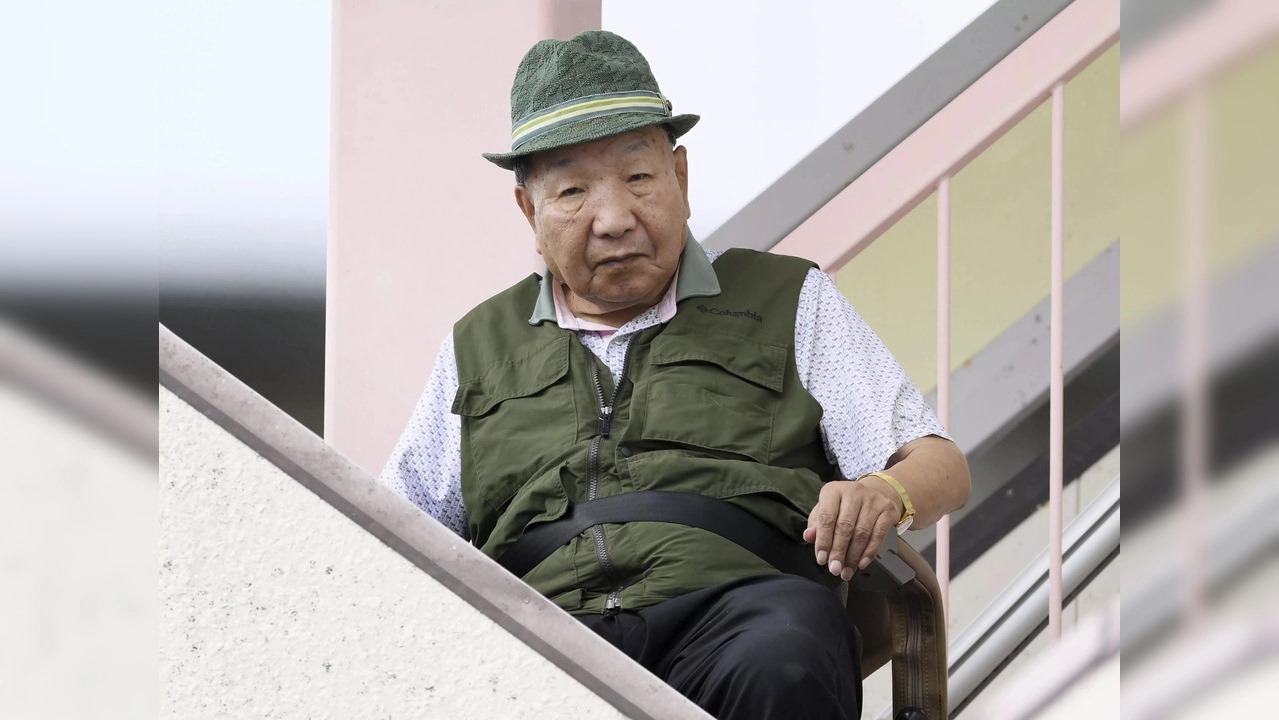You can now listen to Antigua News articles!

Iwao Hakamada sentenced to death in 1968 and who became the world’s longest-serving death row inmate has finally been acquitted in Japan (Times Now)
by Mick the Ram
A Japanese man who was on death row for almost half a century, making him the world’s longest-serving inmate to be in that position, has been acquitted by a court after it was proved that evidence used against him was fabricated.
Iwao Hakamada, who is now 88-years-old, was found guilty in 1968 of killing his boss, the man’s wife, their two teenage children, as well as committing arson and was sentenced to death.
After decades of campaigning with his sister at the forefront, he was granted a retrial in 2014 amid strong suspicions that investigators had planted evidence that led to his conviction and he was allowed to leave prison.
However, prolonged legal proceedings meant that it took until last year for that retrial to begin and until the end of September this year for a court to declare the verdict.
Sadly and understandably, the 46 years spent on death row have taken a heavy toll on Hakamada’s mental health and as a result he was not fit enough to attend the hearing at Tokyo’s Shizuoka District Court, to hear that his acquittal was official.
Along with the United States, Japan is the only G7 country that still imposes capital punishment, and retrials for death row inmates are very rare, with this case being only the fifth in the nation’s post-war history.
Forced confession
Hakamada was working at a miso soybean processing plant in 1966 when the four bodies were recovered from a fire at their home in Shizuoka, west of Tokyo – all of them had been stabbed to death and Hakamada was put in the frame.
It was suggested that his motive was robbery and the authorities eventually managed to coerce a confession out of him after repeated beatings and relentless interrogation for 20 consecutive days, which would last 12 hours at a time.
Throughout his trial he insisted that he was innocent and his defence explained how he had been pressured into admitting something he hadn’t done, but this was dismissed.
In 1968 he was convicted of the murders and arson, and sentenced to death.
Lawyers uncovered fabrication
The prosecution’s case revolved around some clothes found in a tank of miso soybean paste a year after Hakamada’s initial arrest. Those clothes, purportedly bloodstained, were used to incriminate him.
For years his lawyers argued that the DNA recovered from the clothes did not match his, raising the possibility that the items belonged to someone else and they went one step further to suggest that police could have fabricated the evidence.
They were able to point out the fact that there was an inconsistency with the nature of the red stains on clothing that prosecutors said was Hakamada’s.
The defence questioned how the stains had aged, highlighting how they had remained red and had not darkened after an extended time immersed in soybean paste and as such, it seriously raised the possibility that the evidence was false.
Finally somebody prepared to listen
Their argument was enough to persuade Judge Hiroaki Murayama, and in 2014 he was satisfied enough to rule that “the clothes were not those of the defendant.”
He went on to determine that it was unjust to “detain the defendant further, as the possibility of his innocence has become clear to a respectable degree.”
Mental health suffered severely
Hakamada, a former professional boxer, was pushed to breaking point, stating many times that his battle for justice was like ”fighting a bout every day” but never being able to see a path to victory.
Over forty years of detention, mostly in solitary confinement with the constant threat of execution hanging over him, took a heavy toll on his mental health.
On his release he moved in with his loyal sister, but despite being set free he spent the first two months pacing about her apartment, never even attempting to go outside.
Sister’s unflinching support
Nevertheless, Hideko continued to care for him over the next ten years as lawyers fought on to clear his name.
Throughout her brother’s time on death row Hideko had been unswerving in her support, as she fought across the decades to clear his name.
Finally the 91-year-old said it was sweet to hear the words “not guilty” delivered from the court, even if her brother couldn’t be there. “When I heard that, I was so moved and happy,” she remarked through the tears.
In 2011 The Guinness World Records declared that Hakamada had become officially the longest serving death row inmate.











0 Comments